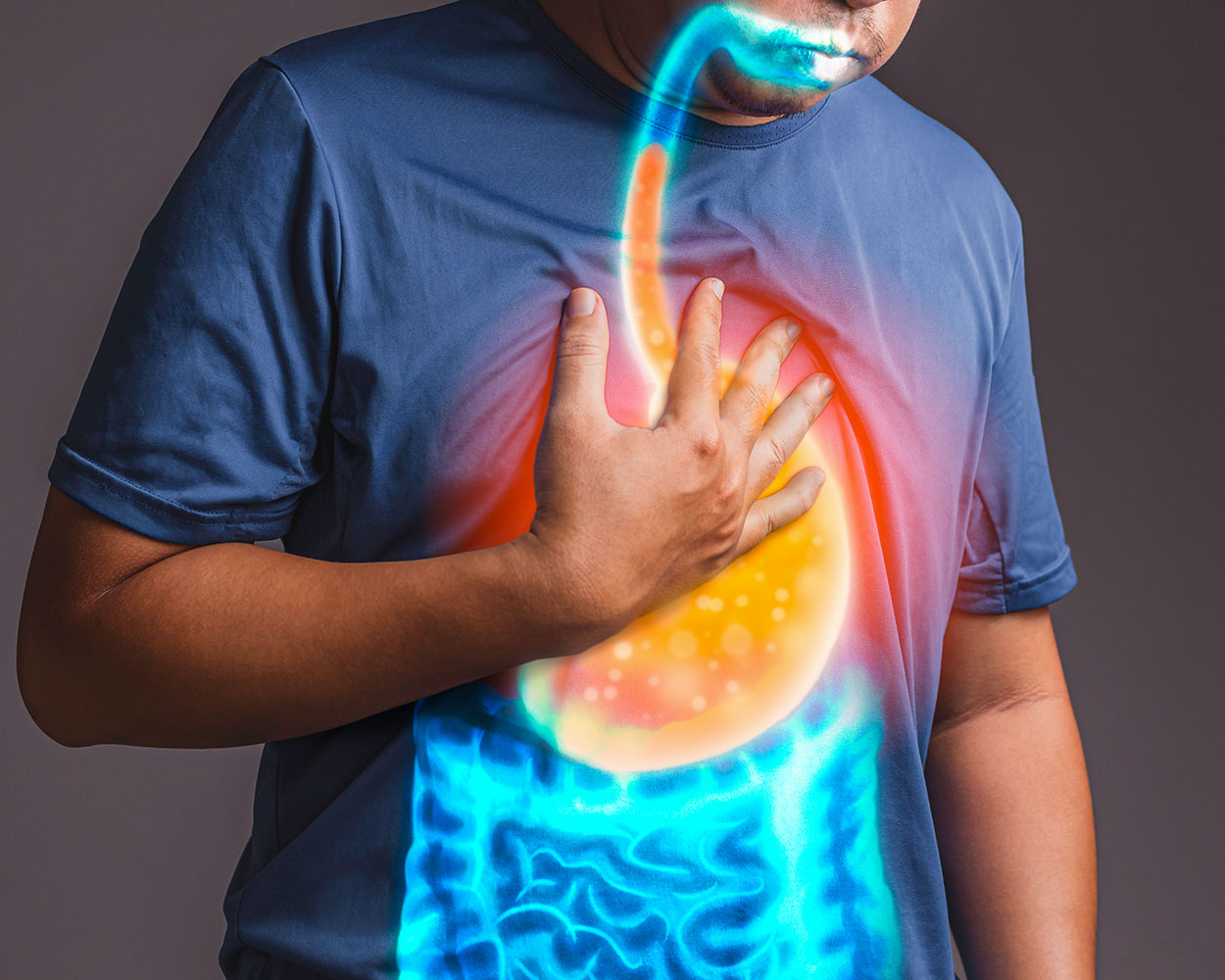Heartburn affects millions of people worldwide, causing that uncomfortable burning sensation in your chest that can make eating and sleeping miserable. The good news? You don't have to live with heartburn forever.
While occasional heartburn is normal, chronic heartburn (also known as GERD - Gastroesophageal Reflux Disease) can significantly impact your quality of life and lead to serious complications if left untreated. The burning pain, acid regurgitation, and sleep disruptions don't have to be your daily reality.
This comprehensive guide will show you proven, natural methods to eliminate heartburn and achieve lasting relief. From dietary modifications to lifestyle changes and effective home remedies, you'll discover everything you need to become truly heartburn-free.
Understanding Heartburn: What's Really Happening?
Heartburn occurs when stomach acid flows backward into the esophagus, the tube that connects your mouth to your stomach. This happens when the lower esophageal sphincter (LES) – a muscle that acts like a valve – becomes weakened or relaxes inappropriately.
The esophagus isn't designed to handle stomach acid, so when acid reflux occurs, you experience that familiar burning sensation. Understanding the root causes helps you address the problem effectively rather than just masking symptoms.
Common Symptoms of Heartburn
- Burning sensation in the chest, especially after eating
- Acidic or sour taste in the mouth
- Difficulty swallowing
- Feeling like food is stuck in your throat
- Chronic cough or hoarseness
- Chest pain that worsens when lying down
Root Causes: Why Heartburn Happens
To become heartburn-free, it's essential to understand what triggers your symptoms. Common causes include:
Dietary Triggers
- Acidic foods: Citrus fruits, tomatoes, vinegar
- Spicy foods: Hot peppers, curry, spicy sauces
- Fatty or fried foods: These slow digestion and increase acid production
- Chocolate and caffeine: Can relax the LES
- Alcohol: Increases acid production and relaxes the LES
- Carbonated drinks: The bubbles can push acid up into the esophagus
Lifestyle Factors
- Overeating: Large meals put pressure on the LES
- Eating late at night: Lying down with a full stomach promotes reflux
- Stress: Can increase acid production and affect digestion
- Smoking: Weakens the LES and increases acid production
- Tight clothing: Puts pressure on the abdomen
7 Proven Strategies to Eliminate Heartburn Naturally
1. Transform Your Eating Habits
How and when you eat is just as important as what you eat:
- Eat smaller, more frequent meals: Instead of 3 large meals, try 5-6 smaller portions throughout the day
- Chew thoroughly: This aids digestion and reduces the workload on your stomach
- Eat slowly: Give your stomach time to signal when it's full
- Stop eating 3-4 hours before bedtime: This prevents nighttime reflux
- Stay upright after eating: Remain sitting or standing for at least 30 minutes after meals
2. Identify and Eliminate Your Trigger Foods
Keep a food diary for 2-3 weeks to identify your personal triggers:
- Record everything you eat and drink
- Note when heartburn symptoms occur
- Look for patterns between foods and symptoms
- Gradually eliminate suspected triggers
- Reintroduce foods one at a time to confirm triggers
3. Optimize Your Sleep Position
Gravity can be your ally in preventing nighttime heartburn:
- Elevate your head: Raise the head of your bed 6-8 inches using blocks or wedges
- Sleep on your left side: This position can reduce acid reflux
- Use a wedge pillow: Provides consistent elevation throughout the night
- Avoid sleeping on your stomach: This can increase abdominal pressure
4. Maintain a Healthy Weight
Excess weight, especially around the midsection, increases pressure on the stomach and can weaken the LES:
- Even a 5-10 pound weight loss can make a significant difference
- Focus on sustainable lifestyle changes rather than crash diets
- Combine dietary improvements with regular exercise
- Consider working with a registered dietitian for personalized guidance
5. Manage Stress Effectively
Chronic stress can worsen heartburn by increasing acid production and affecting digestion:
- Practice relaxation techniques: Deep breathing, meditation, or yoga
- Regular exercise: Helps reduce stress and maintain healthy weight
- Adequate sleep: 7-9 hours per night supports overall digestive health
- Time management: Reduce rushing through meals due to busy schedules
6. Choose Heartburn-Friendly Foods
Focus on foods that naturally reduce acid production and strengthen the LES:
Alkaline Foods
- Leafy green vegetables (spinach, kale, arugula)
- Broccoli, cauliflower, and Brussels sprouts
- Cucumbers and celery
- Bananas and melons
High-Fiber Foods
- Oatmeal and whole grain cereals
- Brown rice and quinoa
- Sweet potatoes
- Beans and legumes (if well-tolerated)
Lean Proteins
- Grilled or baked chicken and turkey
- Fish and seafood
- Egg whites
- Tofu and tempeh
7. Stay Properly Hydrated
Proper hydration supports healthy digestion:
- Drink water between meals rather than during meals
- Aim for 8-10 glasses of water daily
- Choose room temperature or slightly warm water
- Avoid drinking large amounts of liquid with meals
Natural Remedies for Immediate Relief
While lifestyle changes provide long-term relief, these natural remedies can help during acute episodes:
Immediate Relief Remedies
- Apple cider vinegar: 1 tablespoon in water before meals (counterintuitive but effective for some people)
- Baking soda: ½ teaspoon in 4 oz water for occasional relief
- Ginger tea: Natural anti-inflammatory that aids digestion
- Chamomile tea: Soothes the digestive tract
- Aloe vera juice: Can help heal and soothe the esophageal lining
Long-term Support Supplements
- Probiotics: Support healthy gut bacteria and digestion
- Digestive enzymes: Help break down food more effectively
- D-limonene: May help strengthen the LES
- Melatonin: Can help protect the esophageal lining
Always consult with a healthcare provider before starting any supplement regimen.
Creating Your Heartburn-Free Action Plan
Week 1-2: Assessment and Initial Changes
- Start a food and symptom diary
- Implement basic eating habit changes (smaller meals, slower eating)
- Elevate your sleep position
- Begin stress reduction practices
Week 3-4: Dietary Modifications
- Identify and eliminate your top trigger foods
- Increase heartburn-friendly foods in your diet
- Optimize meal timing (last meal 3-4 hours before bed)
- Adjust hydration habits
Month 2 and Beyond: Long-term Optimization
- Fine-tune your diet based on continued observation
- Maintain healthy weight through sustainable lifestyle changes
- Establish consistent stress management practices
- Monitor progress and adjust strategies as needed
When to Seek Professional Help
While natural approaches are highly effective for many people, seek medical attention if you experience:
- Heartburn more than twice per week despite lifestyle changes
- Severe chest pain or difficulty swallowing
- Persistent cough or hoarseness
- Unintended weight loss
- Blood in vomit or stool
- Symptoms that interfere with daily activities or sleep
Your Journey to Heartburn Freedom
Becoming heartburn-free is not just about eliminating discomfort – it's about improving your overall quality of life. The strategies outlined in this guide have helped thousands of people find lasting relief from heartburn without relying solely on medications.
Remember, everyone is different, and what works best for you may require some experimentation. Be patient with the process and consistent with your efforts. Most people begin to see improvements within 2-4 weeks of implementing these changes.
Start with the strategies that feel most manageable for you, and gradually incorporate others as you build new, healthy habits. Your dedication to making these changes will pay off with better digestion, improved sleep, and freedom from the burning pain of heartburn.
Take the first step today – your heartburn-free future awaits!

